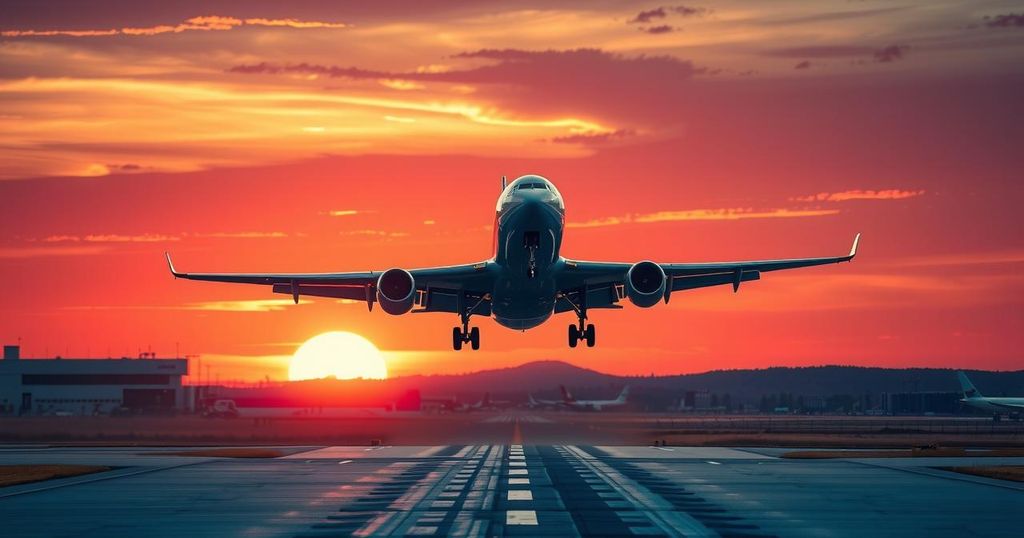Politics
CHEVRON, CONVIASA, CUBA, DEPORTATION, HERITAGE PRESERVATION, HONDURAS, HUMAN TRAFFICKING, IMMIGRATION, JORGE RODRIGUEZ, JORGE RODRÍGUEZ, MADURO, MARCO RUBIO, MIGRATION, NATIONAL ASSEMBLY, NICOLÁS MADURO, NICOLAS MADURO, NORTH AMERICA, RICHARD GRENELL, SOUTH AMERICA, TREN DE, TREN DE ARAGUA, TRUMP, UNITED STATES, US, US BUREAU OF WESTERN HEMISPHERE AFFAIRS, VENEZUELA
Sophia Klein
US Resumes Deportation Flights to Venezuela Amid Diplomatic Tensions
US deportation flights to Venezuela have resumed after a temporary halt due to diplomatic disputes. A recent flight returned 199 Venezuelans, highlighting a complex relationship between the two nations. Venezuelan authorities view these flights as a means to support their citizens, while US officials label them as illegal aliens. The situation remains contentious, with implications surrounding immigration policy and deportee treatment.
Recently, a flight transporting 199 Venezuelan deportees from the United States has successfully landed at Simón Bolívar airport, a significant development in US-Venezuela relations. After a pause in repatriation flights due to a standoff over sanctions, an agreement was reached to resume the deportations, in alignment with the Trump administration’s initiatives aimed at eliminating undocumented immigration.
Venezuelan President Nicolás Maduro articulated that these flights represent an opportunity to “rescue and free migrants from prisons in the US.” Upon their arrival in Venezuela, some deportees expressed joy by waving their arms as they disembarked. Prior to this, they were transferred from Texas to Honduras and subsequently flown home by Venezuelan airline Conviasa.
In a statement, the US Bureau of Western Hemisphere Affairs labeled the repatriated individuals as “illegal aliens” lacking the grounds for remaining in the United States. Conversely, Jorge Rodríguez, the head of Venezuela’s National Assembly, asserted on Saturday that migration should not be considered a crime. Initially, a deal was brokered in January for the acceptance of Venezuelan deportees, which was interpreted as a win for the Trump administration’s immigration policies.
However, tensions arose when Maduro noted that the US government’s withdrawal of Chevron’s operational license had disrupted the ongoing communication channels, which he had hoped would facilitate the return of Venezuelans unjustly detained. An alarming incident followed, wherein the Trump administration deported a contingent of Venezuelans to a notorious prison in El Salvador, based on allegations of gang affiliations, inciting significant backlash in Venezuela.
Subsequent to these events, US Secretary of State Marco Rubio issued a stern warning concerning escalated sanctions against Venezuela if they refused to accept their nationals from the US. In response, Maduro directed his administration to intensify efforts to ensure the repatriation of detained migrants.
The recent resumption of deportation flights to Venezuela highlights a complicated relationship between the two nations, navigating through diplomatic challenges and differing perspectives on immigration. These developments reveal ongoing tensions but also a mutual agreement aimed at addressing undocumented migration, while raising significant concerns regarding the treatment of deportees and the political implications of such actions.
Original Source: www.bbc.co.uk








Post Comment